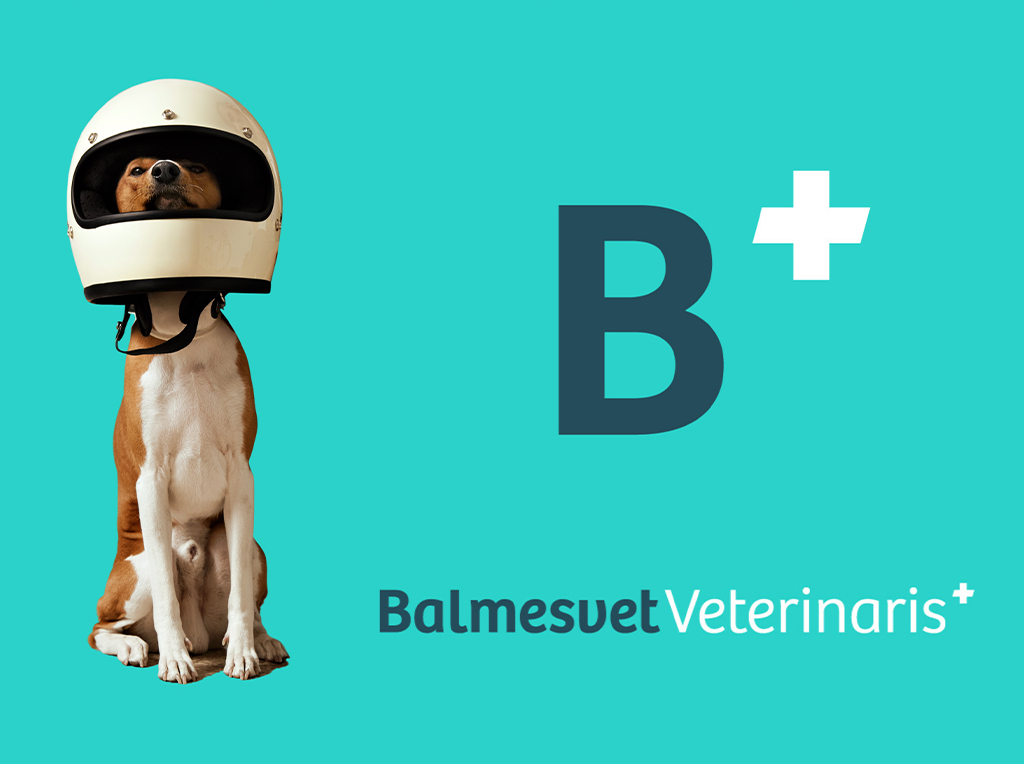Why should you consider health insurance for your pet?
In recent years, health insurance for cats and dogs has become increasingly important in planning for the welfare of our pets. As advances in veterinary medicine allow for more effective and specific treatments, the cost associated with unforeseen events, such as accidents or illnesses, has also increased. This is one of the reasons why having veterinary health insurance not only provides peace of mind, but also financial protection that can be crucial in unexpected situations.
At Balmesvet we do not directly manage the acquisition of health insurance, but we can recommend and advise you. We believe that having medical insurance for your pet is an excellent way to guarantee its welfare. It is an investment that will allow you to offer your cat and dog the best medical care without worrying about the budget. Here’s why this type of insurance can be essential to ensure the health of your feline and canine companion.
Benefits of veterinary insurance
Taking out health insurance for your pet ensures you have access to a wide variety of services that can make a difference in their quality of life. Some of the most important benefits are:
- Accident and illness coverage: unforeseen events can happen at any time. From a simple fracture to more serious illnesses, a good insurance policy will cover diagnostic tests (X-rays, blood tests, ultrasounds, etc.) and the necessary treatments, such as surgeries or hospitalizations. With this, you will be able to face any health situation for your pet without worrying about the price.
- Reimbursement for preventive treatments: Preventive veterinary care is key to avoiding health problems in the future. Insurance companies often offer reimbursement for vaccinations, deworming and regular check-ups, ensuring that your furry companion is protected against the most common diseases.
- Freedom of choice of veterinarian: when you take out insurance, you can usually choose the veterinarian you trust, which gives you access to the best care, wherever you are. This is especially useful if you are traveling with your pet or if you prefer a particular specialist.
- Coverage for medication and long-term treatment: In cases of chronic illness, many insurance policies cover part of the cost of medication and long-term treatment. This is especially useful in diseases such as diabetes, allergies or heart conditions, which require long-term care.
- Lifetime coverage: Health needs change with age, and geriatric dogs and cats often require more care. The right insurance will provide lifetime coverage, ensuring that your feline and canine companion receives the care needed at every stage of life.
 In addition to what we already mentioned, a good veterinary health insurance policy should cover a number of essential aspects. When choosing health insurance for your pet, it is essential that the policy includes:
In addition to what we already mentioned, a good veterinary health insurance policy should cover a number of essential aspects. When choosing health insurance for your pet, it is essential that the policy includes:
- Emergency veterinary treatments: emergencies come with no warning, and coverage in these cases is essential. Insurance policies that cover veterinary emergencies guarantee that, in the event of a critical situation, your pet will receive immediate attention without money being an obstacle.
- Surgeries and hospitalization: surgical interventions and prolonged veterinary hospitalization generally involve a significant increase in price. A veterinary health policy that covers these situations allows you, in more serious cases, to opt for the best available treatments for your pet.
- Additional veterinary coverage: some policies include extras, such as assistance in case of loss of the pet, compensation for death or civil liability for damages your pet may cause to third parties. These coverages offer extra peace of mind in case of any unforeseen event.
When is the best time to purchase pet health insurance?
The ideal time to take out insurance is when your pet is young and healthy. In these cases, insurers usually offer better conditions and rates, since the risk of pre-existing diseases is lower. However, it is never too late to consider veterinary health insurance, especially if your dog or cat has already shown a predisposition to health problems or if you want to avoid financial burdens that may arise in the future.
What do I need in order to take out veterinary health insurance?
If you decide to take out health insurance for your dog or cat, you will need to meet certain requirements and provide certain information:
- Age of the dog or cat: many insurance companies establish a minimum and maximum age to insure a pet. It is common that dogs and cats are insurable from three months of age, with a limit that can be between 7 and 10 years old, depending on the company.
- Medical history: the dog or cat must be up to date with its vaccinations and veterinary check-ups. Some companies may request a recent health certificate, as well as vaccination history and preventive treatments such as deworming.
- Microchip or identification: in most cases, it is mandatory that the animal is identified with a microchip. If your dog or cat does not yet have one, you should get it before taking out the insurance.
- Breeds with restrictions: some breeds of dogs and cats, which are more prone to diseases or special care, may be excluded or have additional conditions. It is advisable to be well informed about these restrictions before taking out insurance.
Congenital and pre-existing diseases: what you need to know
An important aspect to keep in mind is that many insurers do not cover congenital or hereditary diseases. These are conditions that the animal is born with or that are linked to its genetics. In addition, pre-existing diseases, i.e., those diagnosed before taking out the insurance, are usually excluded from coverage. It is essential to thoroughly review the conditions of each policy to know what type of conditions are excluded from coverage.
Selecting the right pet health plan
As with health insurance for people, there are different coverage plans for pets. Some cover only accidents, others include illnesses, and the most comprehensive ones add preventive treatments and medications. When choosing a plan, keep in mind:
- Accident and sickness coverage: make sure the plan covers both aspects.
- Preventive treatments: the most complete plans include partial reimbursement for preventive care such as vaccinations and deworming.
- Medications and special treatments: It is advisable that the policy covers necessary medications, especially for chronic illnesses.
- Co-payments and deductibles: check if the plan includes co-payments or deductibles, as these may affect the total cost of each procedure.
Hiring a veterinary health insurance for your cat or dog is one of the best decisions you can make to ensure their welfare and your peace of mind. At Balmesvet, we help you plan and choose the best option so you can face any medical situation with confidence. With the right veterinary health insurance, you not only protect your lifelong companion, but you also ensure that he or she will receive the best care at all times, without the financial outlay being an obstacle.




